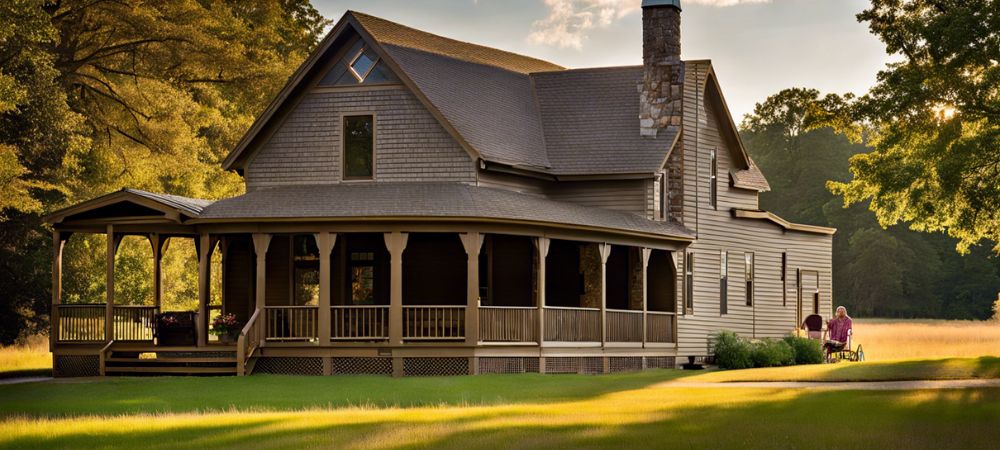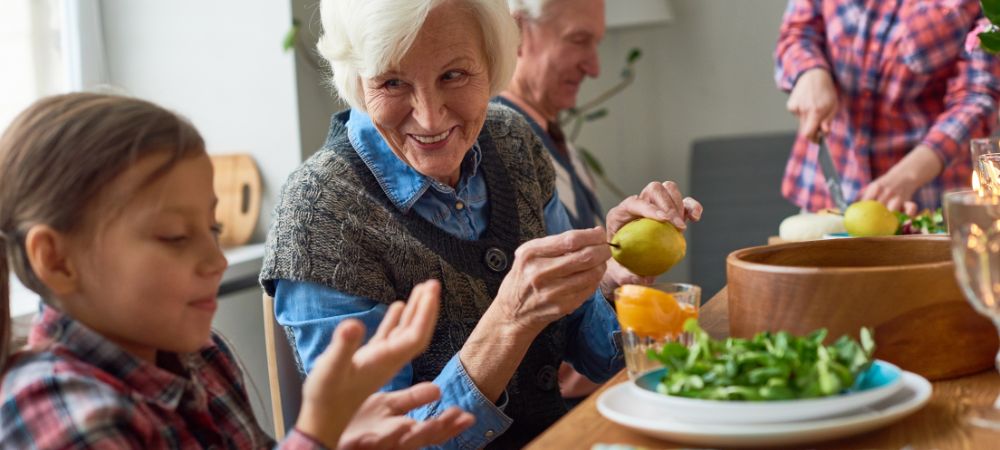

When we talk about family gatherings and traditions, it's essential to understand the historical perspective that has shaped these cherished events. You see, family traditions didn't just pop out of nowhere; they've evolved over centuries, influenced by culture, religion, and societal changes.
In the past, families were much larger than they are today. Extended families often lived together or close by. Back then, it wasn't uncommon for three or even four generations to share a home. For more details check below. So you can imagine how different their gatherings must have been! They weren't just about celebrating holidays but also about surviving together. Harvest festivals and communal meals after a hard day's work on the farm were not just festive occasions-they were necessary for social cohesion and survival.
But hey, let's not get too nostalgic here. Not all old traditions were great. Some of them-like certain rites of passage-were downright harsh by today's standards! However, many beautiful customs have been passed down through the ages and morphed into what we enjoy now.
Take Thanksgiving in America as an example. This holiday started as a simple feast between Pilgrims and Native Americans. Over time, it's grown into a massive celebration involving parades, football games, and way too much food! But at its core remains that original idea: giving thanks and spending time with loved ones.
Family reunions have also changed drastically over time. In earlier days, travel was tough; people didn't hop onto planes for quick visits across the country (or world!). Families who moved away might only see each other once in a blue moon-if at all! Nowadays though? Technology makes it so easy to stay connected that some argue we're losing that special feeling of reunion because folks are always in touch via social media.
Another fascinating aspect is how different cultures approach family gatherings differently yet similarly somehow feel united by this universal concept of coming together regularly or during special times like weddings or funerals which still hold deep traditional values globally despite modern influences creeping in rapidly everywhere around us!
However-and here's where it gets interesting-not every tradition stands the test of time unscathed either; many adapt while others fade away completely due mainly perhaps societal shifts reflecting changing values over generations impacting lifestyle choices directly affecting familial bonds indirectly too sometimes unnoticed until much later realization dawns upon everyone involved usually leading towards renewed efforts preserving whatever little remnants left behind hoping future descendants continue carrying legacy forward albeit modified versions suited current era requirements better fitting overall context seamlessly without compromising essence originally intended purpose whatsoever eventually resulting balanced harmonious blend old new enriching lives immeasurably along journey timelessly bridging past present future beautifully intertwined tapestry humanity itself woven intricately emotions memories shared countless moments spanning lifetimes collectively treasured forevermore undeniably priceless indeed wouldn't disagree?
So next time you're sitting around your family's dinner table-whether it's Thanksgiving turkey or Sunday roast-remember there's more history behind those gatherings than meets eye initially thought possible appreciate deeper significance underlying seemingly ordinary events realizing profound impact shaping identities connecting roots grounding existence firmly midst ever-changing world constantly evolving unpredictably challenging embrace wholeheartedly cherish fully conscious effort maintaining nurturing relationships stronger resilient enduring lasting legacies worth preserving faithfully lovingly always truly matter end day ultimately fulfilling life joyously abundantly blessed beyond measure eternally grateful simply being part something greater ourselves unbreakable bond uniquely ours forever amen!
Family gatherings play a crucial role in strengthening relationships, and honestly, it ain't just about the food or the festivities. Families all over the world have different traditions that bring them together, from Sunday dinners to big holiday celebrations. These events are more than just routine; they're opportunities for family members to connect on a deeper level.
When you think about it, family gatherings provide a space where everyone can actually talk and share what's been going on in their lives. It's not like those quick text messages or social media updates; it's face-to-face interactions that matter. For instance, grandparents get to see how their grandkids are growing up, siblings catch up on each other's news, and cousins bond over shared interests or even silly jokes. This kind of quality time is what really helps strengthen those familial bonds.
Moreover, traditions passed down through generations enrich these gatherings with layers of meaning. It might be something as simple as an annual barbecue or as elaborate as a cultural festival but these rituals create a sense of belonging and continuity. They serve as a reminder that no matter how much things change outside the family circle, there's always something stable and familiar to come back to.
But let's be honest here - family gatherings aren't always perfect. There can be disagreements and awkward moments too. Yet even these less-than-ideal situations contribute to relationship building because they offer chances for resolution and understanding. When conflicts arise within a loving environment-where people genuinely care about each other-they're often resolved in ways that make relationships stronger rather than weaker.
Oh! And let's not forget the role of storytelling during these meetups! Stories shared by older generations give younger members insights into their heritage and history. This passing down of stories helps build a collective identity which is super important for maintaining strong relationships within families.
In conclusion, while it's easy to overlook the importance of gathering together especially when we're busy with our individual lives, we shouldn't underestimate its value in fortifying our familial connections. Family gatherings may have their ups and downs but at their core they provide indispensable opportunities for communication understanding and love-the very glue that holds families together.
So yeah next time you're tempted to skip out on a family event maybe reconsider? After all you never know what meaningful moment you might miss out on!
Transforming family dynamics ain't always easy, but fostering a supportive and nurturing environment can truly make a world of difference.. You might think it's all about grand gestures and elaborate plans, but nope!

Posted by on 2024-07-04
**Celebrating Milestones Together: Uncover the Hidden Techniques for Lasting Connections**
Strengthening family bonds ain't just about spending time together; it's about making those moments meaningful.. One of the most powerful ways to do this is by celebrating milestones and special occasions as a family.

Posted by on 2024-07-04
Family conflicts are a part of life; they happen to everyone.. It can be quite challenging, and let's face it, no one really enjoys dealing with them.

Posted by on 2024-07-04
Family gatherings and traditions hold a special place in our hearts, don't they? They're moments that bind us together through shared experiences and memories. Not every family has the same traditions, but there are some common types that seem to resonate universally.
One of the most popular family traditions is holiday celebrations. Whether it's Christmas, Hanukkah, Thanksgiving or any other holiday, these gatherings usually involve elaborate meals, decorations, and sometimes even rituals or ceremonies. The significance? Well, it's not just about eating turkey or lighting candles; it's about creating a sense of continuity and belonging. You're not just celebrating an event; you're celebrating your family's history and future all in one go.
Then there's birthdays. Oh boy! Who doesn't love a good birthday party? From blowing out candles on cakes to receiving gifts wrapped in colorful paper-it's like magic for kids and adults alike. But beyond the fun and games, birthdays are significant because they remind us to appreciate each other as individuals. It's a day where someone gets to feel extra special within their family unit.
Another tradition that's quite touching is family reunions. These aren't always easy to organize-getting everyone in the same place at the same time can be like herding cats-but when they do happen, wow! The joy of reconnecting with relatives who you might not see very often can't be overstated. Reunions serve as a powerful reminder of our roots and offer a chance for older generations to pass down stories and wisdom.
Let's not forget weekly or monthly dinners either. While they might seem mundane compared to holidays or reunions, these regular get-togethers can be incredibly meaningful too. They provide consistent opportunities for families to catch up on each other's lives without waiting for some big event to come around again.
And how about those quirky little traditions unique to each family? Maybe it's watching a certain movie every New Year's Eve or having breakfast in bed on Mother's Day-these small rituals contribute significantly by adding layers of uniqueness into familial relationships which makes them feel more intimate than generic ones would ever manage!
But hey-not everything needs tradition attached! Sometimes spontaneous moments end up becoming cherished memories themselves simply because they're unplanned yet deeply felt experiences shared among loved ones!
In conclusion (not trying sound too formal here), whether grandiose events like weddings or everyday habits such as weekend hikes-the essence lies within connection built over time through repeated actions proving we value being together despite life's ups downs twists turns-and ain't nothing wrong wanting keep those threads woven tight!
So yeah...family traditions aren't just "nice-to-haves"; they're essential parts defining who we collectively become while offering individual spaces grow flourish-don't underestimate their power nor neglect nurturing them whenever possible!

Family gatherings are a cornerstone of societal life, cherished for bringing loved ones together. However, the impact of cultural and regional differences on these occasions can't be ignored. It's fascinating how traditions vary so widely across the globe.
In some cultures, family gatherings involve elaborate rituals that have been passed down through generations. Take, for instance, in India where festivals like Diwali or Holi are celebrated with colorful decorations, traditional music and an abundance of sweets. You wouldn't find such vibrant customs in a typical American Thanksgiving dinner though; it's not just about the turkey but also about expressing gratitude and watching football games.
Regional differences within a country can be just as striking. In Italy's northern regions, family meals might include polenta or risotto while southern families prefer pasta dishes seasoned with fresh tomatoes and olive oil. The way people gather around food says alot about their heritage and values.
Some cultures place great emphasis on extended family members being present at these gatherings. In many Latin American countries, it ain't uncommon to see three or four generations under one roof during holidays like Christmas or New Year's Eve. Contrastingly, in more individualistic societies such as those found in Western Europe or North America, nuclear families often celebrate separately from their extended kin.
Language barriers can also play a role in how comfortable people feel at family events. Imagine growing up speaking English but visiting relatives who only speak Spanish – it could create quite a few awkward moments! Misunderstandings aren't rare when you mix different languages and dialects into one event.
But let's not forget the emotional aspect either. For some folks from collectivist societies like Japan or China, there's an inherent obligation to attend family functions even if they live far away. Meanwhile, individuals from more individualistic backgrounds might view such obligations as burdensome rather than joyful reunions.
Religion too adds another layer of complexity to family gatherings around the world. A Jewish Seder meal during Passover is filled with symbolic foods and readings that wouldn't mean much outside its religious context whereas a secular birthday party focuses solely on celebration without any spiritual undertones.
So yeah, cultural and regional differences definitely shape how we experience family gatherings-sometimes making them richer but other times adding layers of complexity that aren't easy to navigate! Despite all these variations though what remains constant is the desire for connection among loved ones which transcends borders language barriers and even time itself...
Family gatherings and traditions have always held a special place in our hearts. They remind us of where we come from and give us a sense of belonging. However, maintaining these family traditions in modern times ain't easy. There are several challenges that families face today which can make it difficult to keep these cherished customs alive.
First off, one major challenge is the fast-paced lifestyle everyone seems to be living nowadays. People are busier than ever with work, school, and a ton of other commitments that just keep piling up. It's not uncommon for family members to live in different cities or even countries because of job opportunities or educational pursuits. The distance makes it hard to get everyone together for those special occasions.
Another factor that's really throwing a wrench in the works is technology. Now don't get me wrong, technology has its perks. Smartphones and social media make it easier to stay connected with loved ones who live far away. But at the same time, they can also be quite distracting during family gatherings. Instead of engaging in meaningful conversations, people often find themselves glued to their screens. It takes away from the quality time we're supposed to spend together.
Then there's the generational gap! Oh boy, this one's a biggie. Older generations hold onto traditions dearly but younger folks might see them as outdated or irrelevant. They may not understand why certain rituals are important because they haven't been explained properly or seem out-of-touch with today's world. This clash can create tension and make it harder to pass on these traditions.
Financial constraints also play a role here too! Organizing big family gatherings can be expensive – travel costs, food preparations, gifts – all add up quickly! Not every family has the means to throw lavish celebrations anymore which puts another hurdle in keeping those traditions alive.
Moreover, there's also cultural assimilation especially among immigrant families who try balancing their original culture with adapting into their new environment's ways without losing identity completely . Sometimes effort goes more into fitting into new settings than preserving old customs .
Finally , let's talk about shifting values . In many modern households , individualism is emphasized over collectivism which wasn't case before . As personal achievements become priority , less emphasis lies on familial bonds making traditional gatherings feel less significant .
Despite these challenges though , it's not impossible ! Families just need bit creativity & flexibility . Virtual reunions becoming trend allowing distant relatives join festivities without physically being present . Also blending old-new customs could help bridge generational gaps ensuring everyone feels included .
In conclusion , while maintaining family traditions isn't walk park given various hurdles today's world presents ; however little effort communication understanding amongst members definitely helps keeping spirit alive ! Afterall essence behind any tradition lies love bonding shared moments creating memories cherish lifetime
Family gatherings and traditions are like a warm, cozy blanket that wraps around us, giving comfort and continuity. But what's the point of preserving and adapting old traditions for new generations? Well, it's not just about keeping history alive; it's got a lot to do with the present and future too.
First off, let's not think that old traditions are boring or outdated. They ain't! These customs hold emotional value that connects family members across different ages. Imagine sitting at the dinner table during Thanksgiving, hearing stories from your grandparents about how things were back in their days. It's like opening a time capsule without leaving your seat! These shared experiences foster a sense of belonging and unity that's hard to find elsewhere.
Now, you might wonder if sticking to old traditions means resisting change. That's not it at all! Adapting these customs to fit our current lifestyles is equally important. After all, we don't live in the past (thank goodness!). Updating these practices can make them more relevant and enjoyable for younger generations. For instance, instead of handwriting holiday cards-which nobody does anymore-you could send personalized video messages. It keeps the spirit alive while embracing modern technology.
Moreover, preserving certain family rituals provides stability in an ever-changing world. With so much uncertainty around us-thanks to things like global pandemics-having some constants can be really reassuring. Kids especially benefit from this consistency as it gives them something positive and predictable to look forward to.
But hey, let's not pretend everything's peachy keen all the time! Sometimes sticking rigidly to tradition can cause stress or even conflict within families. Not everyone wants to participate in every single ritual year after year. And that's okay; flexibility is key here. The goal isn't perfection but creating moments where everyone feels involved and cherished.
Lastly, there's no denying that traditions teach valuable lessons-patience through cooking elaborate meals together or gratitude by recognizing what you have before diving into presents on Christmas morning (though who doesn't love gifts?). These lessons aren't just fleeting; they stick with us long after we've left home.
So yeah, preserving and adapting old traditions for new generations isn't just some sentimental hogwash-it has real benefits that enrich our lives today while paving the way for tomorrow's memories. Whether it's passing down secret family recipes or tweaking holiday celebrations to include diverse cultures within extended families, these actions weave a tapestry of love and connection that holds strong through changing times.
In conclusion: family gatherings and traditions are worth cherishing-not only because they link us back to our roots but also because they evolve with us into something even more beautiful over time.